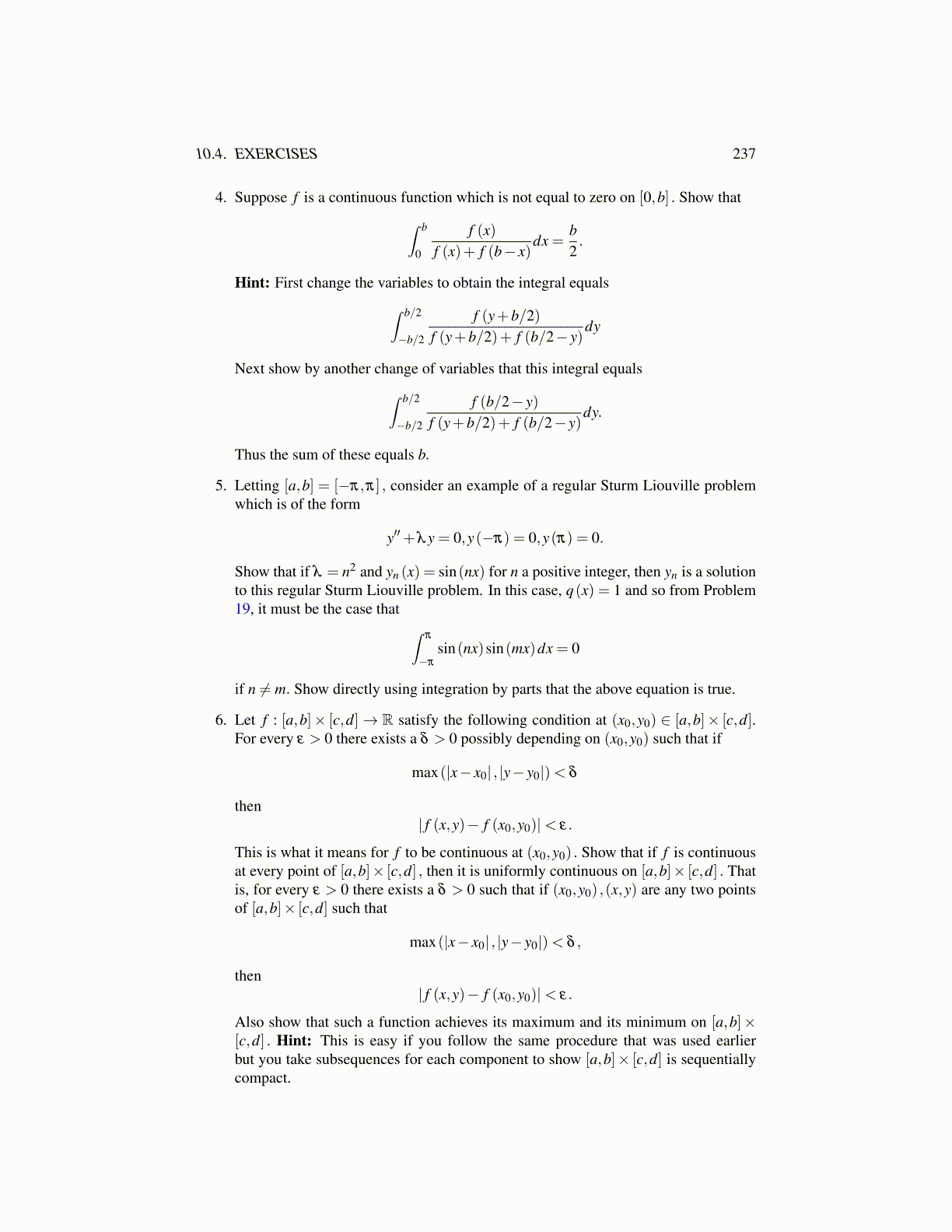
10.4. EXERCISES 237
4. Suppose f is a continuous function which is not equal to zero on [0,b] . Show that∫ b
0
f (x)f (x)+ f (b− x)
dx =b2.
Hint: First change the variables to obtain the integral equals∫ b/2
−b/2
f (y+b/2)f (y+b/2)+ f (b/2− y)
dy
Next show by another change of variables that this integral equals∫ b/2
−b/2
f (b/2− y)f (y+b/2)+ f (b/2− y)
dy.
Thus the sum of these equals b.
5. Letting [a,b] = [−π,π] , consider an example of a regular Sturm Liouville problemwhich is of the form
y′′+λy = 0,y(−π) = 0,y(π) = 0.
Show that if λ = n2 and yn (x) = sin(nx) for n a positive integer, then yn is a solutionto this regular Sturm Liouville problem. In this case, q(x) = 1 and so from Problem19, it must be the case that ∫
π
−π
sin(nx)sin(mx)dx = 0
if n ̸= m. Show directly using integration by parts that the above equation is true.
6. Let f : [a,b]× [c,d] → R satisfy the following condition at (x0,y0) ∈ [a,b]× [c,d].For every ε > 0 there exists a δ > 0 possibly depending on (x0,y0) such that if
max(|x− x0| , |y− y0|)< δ
then| f (x,y)− f (x0,y0)|< ε.
This is what it means for f to be continuous at (x0,y0) . Show that if f is continuousat every point of [a,b]× [c,d] , then it is uniformly continuous on [a,b]× [c,d] . Thatis, for every ε > 0 there exists a δ > 0 such that if (x0,y0) ,(x,y) are any two pointsof [a,b]× [c,d] such that
max(|x− x0| , |y− y0|)< δ ,
then| f (x,y)− f (x0,y0)|< ε.
Also show that such a function achieves its maximum and its minimum on [a,b]×[c,d] . Hint: This is easy if you follow the same procedure that was used earlierbut you take subsequences for each component to show [a,b]× [c,d] is sequentiallycompact.